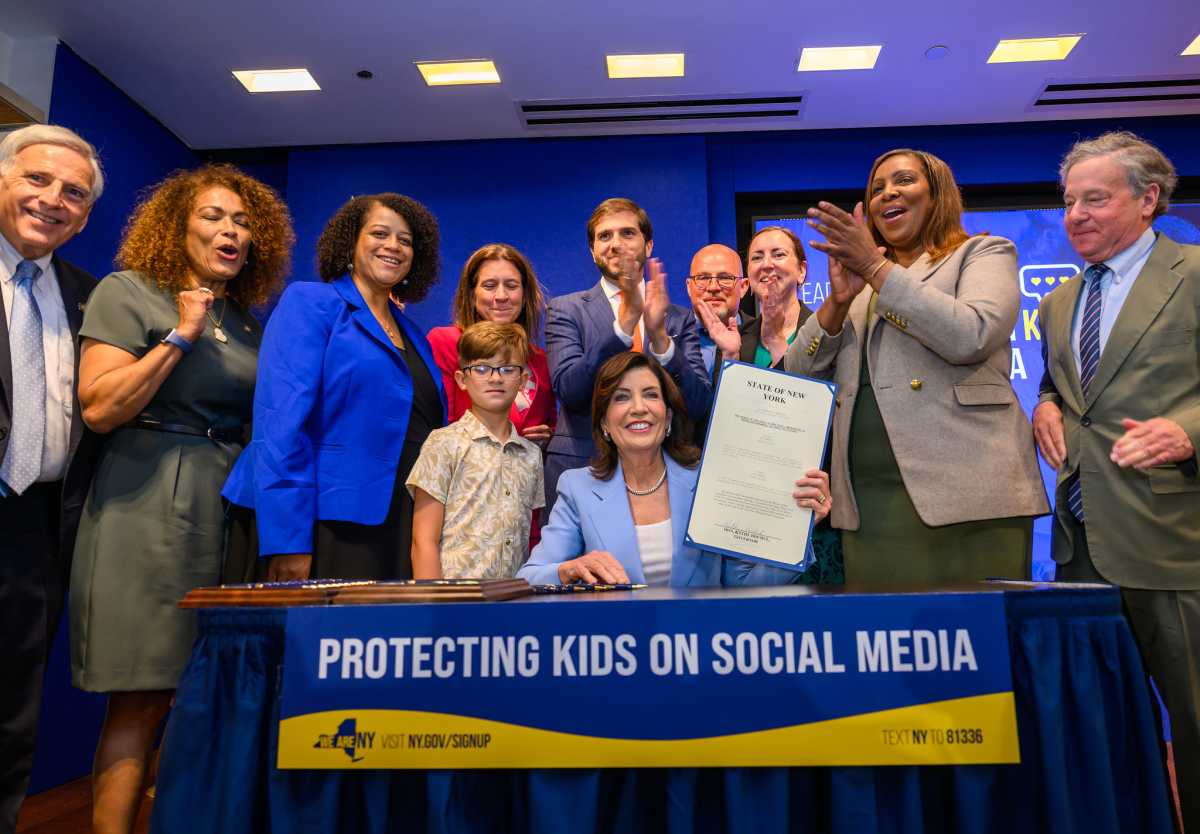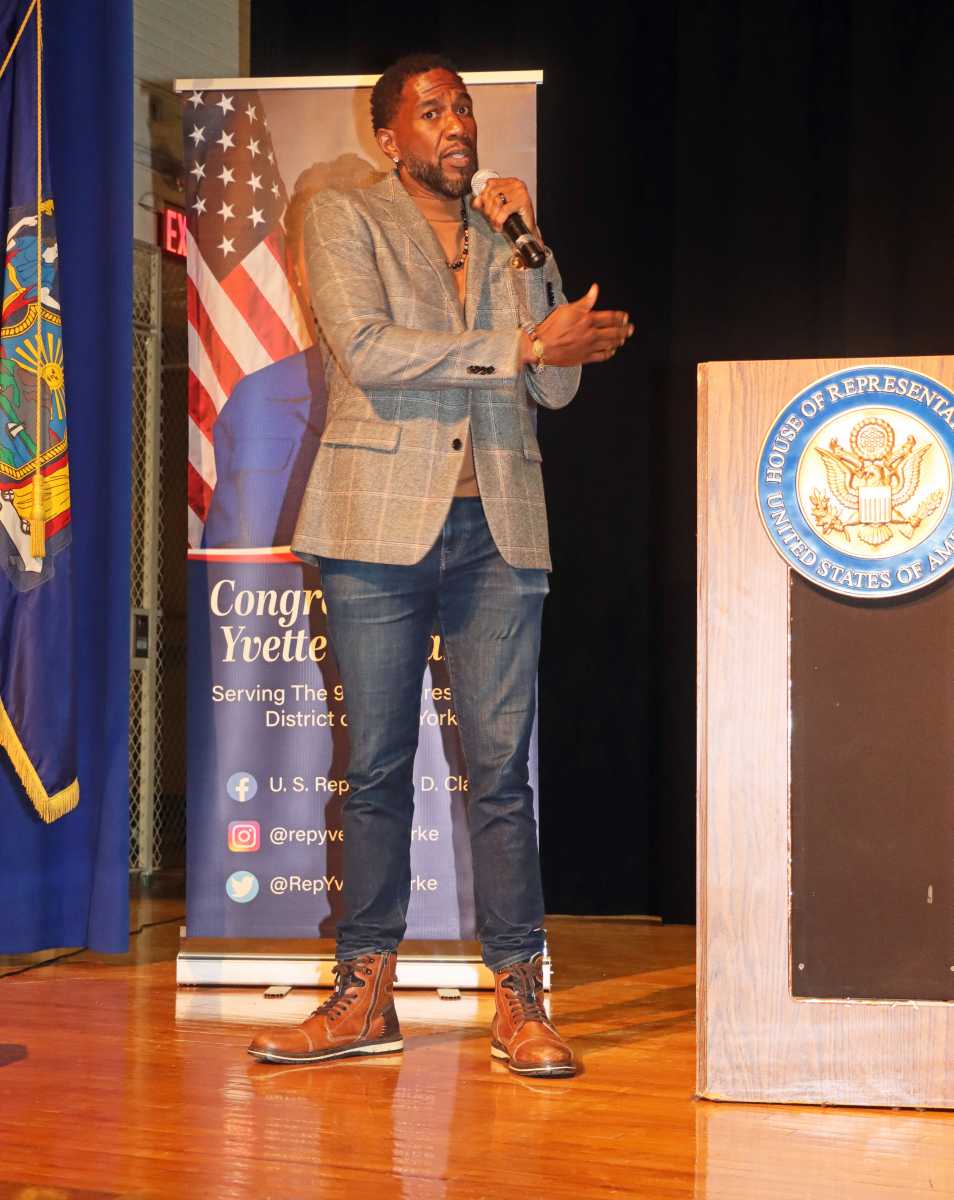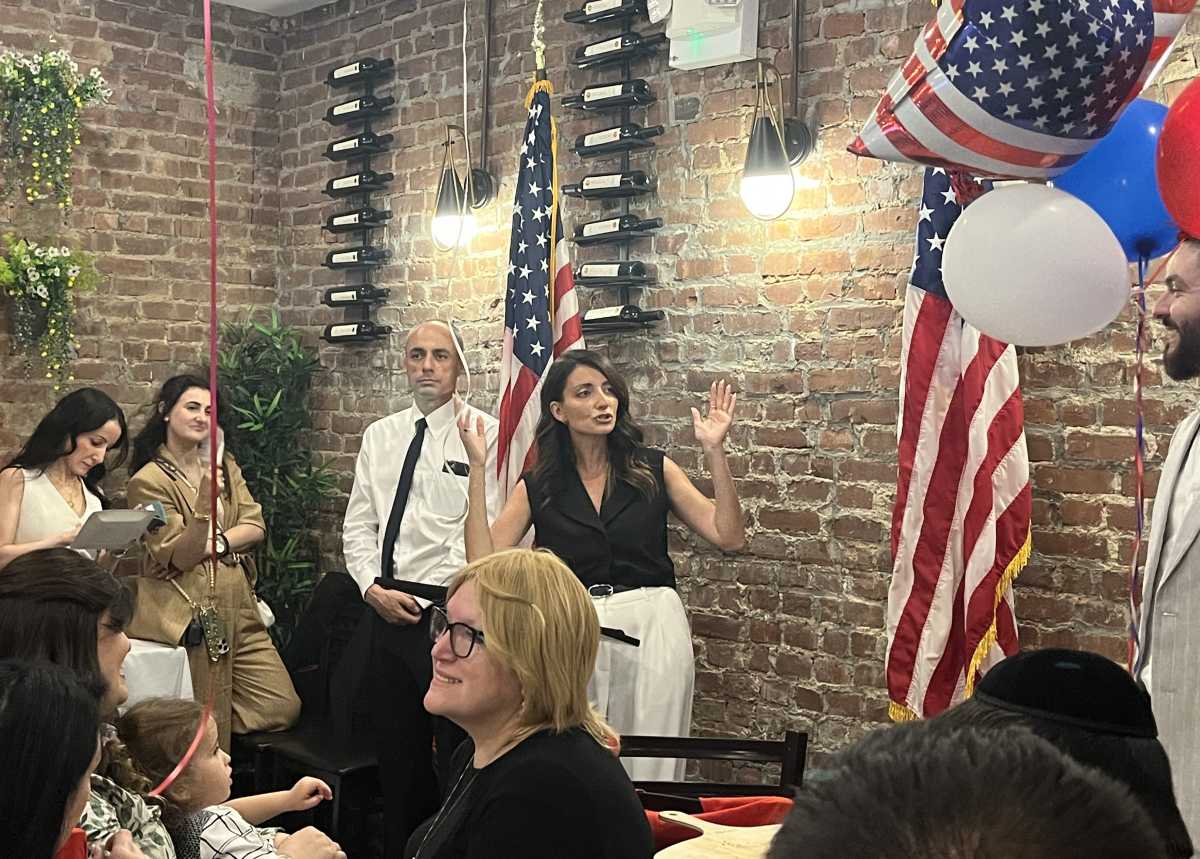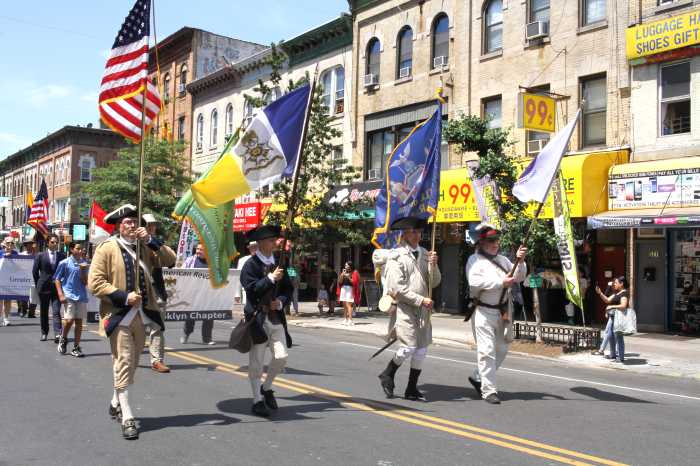Residents, elected officials and advocates gathered last week at Salem Missionary Baptist Church, 305 E 21st Street in Flatbush for the Shirley Chisholm Democratic Club’s forum on the possibility of a New York State Constitutional Convention.ast
The state will vote on whether to hold a Constitutional Convention on Election Day November 7, an opportunity only presented to New York voters every 20 years. If voters choose to hold a convention, elected delegates will convene in April 2019 and could present any changes to New York’s State Constitution that they agree upon.
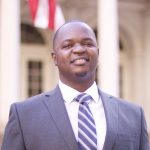
“Through the convention, we can radically change everything, and maybe change as many as two or a hundred different laws that we currently have,” said Democratic District Leader Josue Pierre. “It’s very important that we as leaders offer people the opportunity to see both sides.”
If the state chooses a Constitutional Convention, New Yorkers would then vote on delegates in November 2018. The convention would convene on April 2nd, 2019, and any changes proposed by the convention would need to be approved by voters in November 2019.
Supporters of the convention insist that legislative efforts to amend the constitution are slow-moving and inefficient. They argue that a Constitutional Convention could address voter suppression, reform ethics laws, and codify rights that they say are not protected clearly enough already.
“The implicit voter suppression that happens in New York City will never change unless we have a constitutional convention,” added Art Chang, founder of the Sanctuary State Project and co-founder of the Citizens Union Campaign for a Constitutional Convention. “This is a really momentous time to really think about what we want for the future of our state.”
“We have a chance here, in New York State, to be simply governed ourselves. I don’t think it’s either-or, you can still use the legislature, but this comes around once every twenty years,” added Bertha Lewis, founder and President of the Black Institute. “And I, for one, am not willing to wait for another twenty years to fight.”
Opponents include Unions, Planned Parenthood, Mayor Bill de Blasio, the Democratic Speaker of the Assembly, Carl Heastie, and a variety of interest groups and elected officials. For the most part, the unions lead opposition, arguing that constitutionally protected labor rights would be at risk.
“The Constitutional Convention is very much an idealist’s dream. It’s also very esoteric, and I think it’s going to disenfranchise the same people that it claims to be empowering,” said Michelle Gilliam, Director of Campaigns and Elections for the Transportation Worker’s Union Local 100. “We haven’t been able to transfer our resistance efforts into real voting power. There’s too much at risk.”
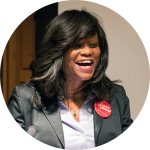
“I would love to open the constitution, but because there are a lot of things we have to change, it’s messy,” said Assembly Member Rodneyse Bichotte (D-Flatbush, Ditmas Park). “But because I know the frustration as an Assembly person, as a state legislator, I personally wouldn’t want to put everything at risk.”
A huge question mark in the debate is the fact that much depends on the particular delegates elected to propose changes in Albany. Not only do delegates choose potential changes, they decide how to present those changes—either grouping them all together to be voted on as a package deal, or clustering them in ways that might complicate voting.
“If you vote yes, you’re taking a leap of faith, because we do not know who the delegates are going to be,” said Susan Welber, staff attorney at the Legal Aid Society. “And you can make predictions, you can make projections, but in the end we simply don’t know.
Chang argued that grassroots and interest groups would be able to organize and provide delegates who represented voters’ needs. But Gilliam said that only well-connected and financed candidates would be elected as delegates.
The room, about thirty people in total, appeared evenly split on the issue. Some audience members expressed concerns about the safeties of their pensions, while others showed frustration with the legislative system and called for immediate action. Across the board, the room seemed concerned by the low level of voter participation in the state.
A Siena College poll last week found New York voters equally divided on the issue. Forty four percent saw the idea as a “once in a generation opportunity,” while 45 percent called it an “expensive waste of time.”
Welber argued that it all boiled down to whether the glass was half-full or half-empty.
“What I’m hearing from Ms. Lewis and Mr. Chang is, ‘we can get the glass not just half-full, but all the way full.’ And what I’m hearing from Ms. Gilliam and others who are against the convention is that there is a risk, if you’re going for a full-glass, that you will lose the half a glass you have right now,” said Weber.



